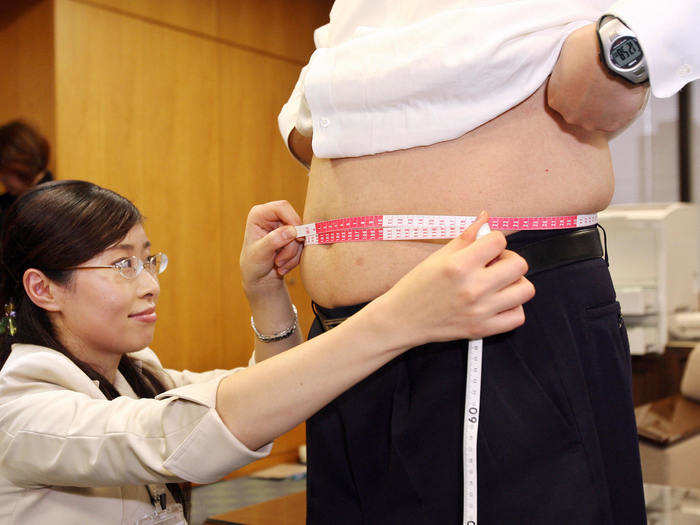- Home
- slideshows
- miscellaneous
- 7 of the most dangerous things that put you at risk of a heart attack
7 of the most dangerous things that put you at risk of a heart attack
Scientists have known for a while that smoking is dangerous for your heart.

Extra flab, especially around a person's mid-section, can also make a heart attack more likely.

Being overweight increases a person's risk of having a heart attack. But even losing a little weight can help: the heavier you are, the more likely a heart attack becomes, especially if you're adding pounds around your mid-section.
A 2018 study of nearly 500,000 middle aged folks in the UK found that those who had bigger bellies were more likely to suffer heart attacks. This was especially true for women with large mid-sections, who had a 10%-20% higher risk of heart attack than others. The find suggests it's more important to take a look at your waistline than hop on the scale, when you're measuring heart health.
It may seem obvious, but spending too much time on the couch without moving your body can create problems for your heart as well.

You don't have to be an Olympian: Just a 30-minute walk each day can help maintain heart health.
Even cleaning up the house can count. A 2007 Harvard study of female hotel maids famously found that when researchers told certain maids that their work was good exercise and satisfied federal recommendations for an active lifestyle, the women lost more weight than their peers. They also lowered their blood pressure and reduced their waist size, reducing their risk of having a heart attack.
"Even activities of low energy expenditure, such as socializing with friends or housekeeping activities, may have a substantial benefit to your health compared to time spent sitting and watching TV," Sotirios Tsalamandris, a cardiologist at the National and Kapodistrian University of Athens, Greece said recently in a release.
Not eating enough fresh foods, like vegetables, fish, and nuts, can also up your risk of a heart attack.

One study of over 112,500 people in the US showed that those who followed a healthy, nutrient-rich, Mediterranean-style diet that included plenty of whole grains, healthy fats, and fresh produce had a 31% lower risk of developing heart diseases, including heart attacks.
Nuts specifically seem to be key: A study of more than 81,000 people in North America found that snackers who ate just a handful of mixed nuts or seeds each day reduced their risk of developing heart disease.
Cutting out dairy may not be ideal for your heart. Some evidence suggests that a regular dose of cheese may help protect your heart, but it can't be the low-fat kind.

Scientists are exploring how something called the "cheese matrix" — the special way that protein and calcium are arranged in full-fat cheeses — might help protect our hearts.
More research on this is needed, but one preliminary study from Ireland suggests that middle-aged, overweight adults who eat full-fat cheddar cheese can reduce their cholesterol more than their peers who eat reduced-fat cheese or butter.
Frequent dieting, especially if you're rebounding a lot, can also stress out your heart and prompt a deadly attack.

People who lose and then re-gain weight frequently can put extra stress on their bodies, which shows up in the heart People with heart trouble who yo-yo diet are not only more likely to suffer heart attacks, they're also more likely to die than their peers.
Nutritionists agree that it's best to adhere to a reasonable diet plan you like and can commit to for life, instead of opting for restrictive fads that often set dieters up to fail.
Not getting enough sleep (seven to eight hours a night for most people) is another way to set your heart up for failure.

A wealth of research shows that people who don't get enough sleep put their heart in serious danger of an attack.
Researchers who have tracked sleepers with wristbands found that people who get less than six hours of sleep per night have about 27% more artery-hardening atherosclerosis, a disease that can lead to more heart attacks.
Even in a laboratory study of young, healthy men, scientists observed that sleeping less than five hours a night for five nights in a row had a measurable effect on the participants' heart rates.
If you have trouble falling asleep or staying asleep, sleep expert Matthew Walker still recommends giving yourself a nice window of "sleep opportunity," which he defines as about eight hours uninterrupted by phones, screens, or other activities.
Just don't overdo it: Studies also show that too much sleep isn't great for our hearts either.
Popular Right Now
Popular Keywords
Advertisement